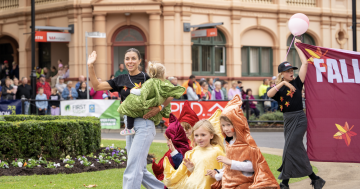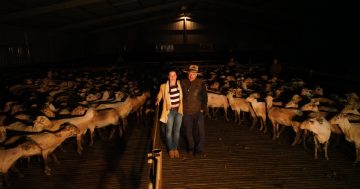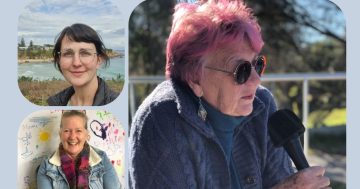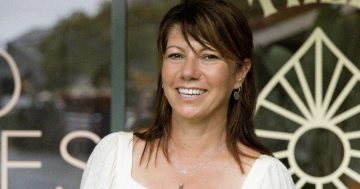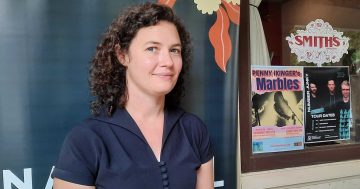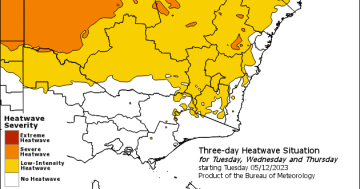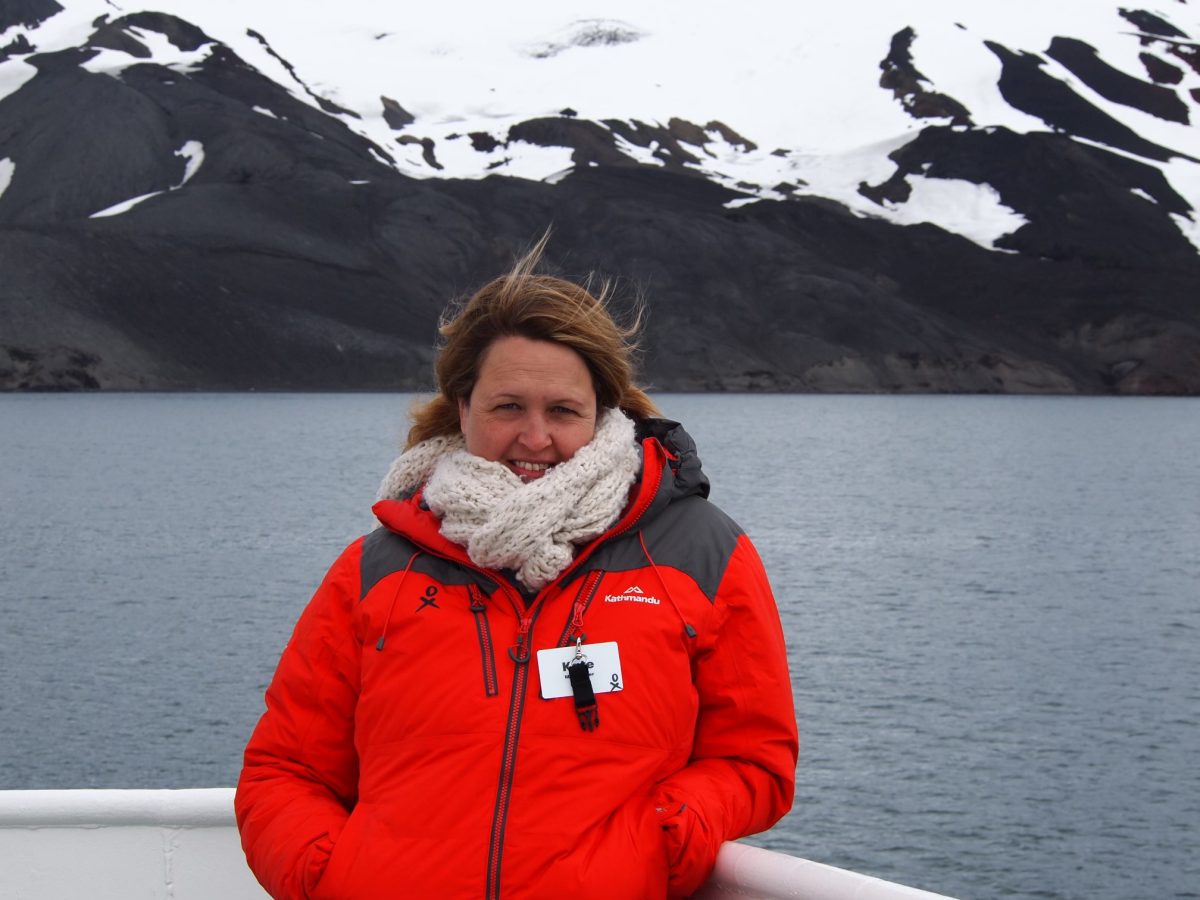
Kate MacMaster, of Blakney Creek, near Yass, on her last trip to the Antarctic with Homeward Bound. She heads off again on 3 November. Photo: Supplied.
Some people think about changing the world. Others talk about it. Then there are those who just go ahead and start trying to do it.
Kate MacMaster falls into the latter category. The Blakney Creek woman is preparing to lead a team of women, some of the smartest in the country, down to one of the most fragile places in the world – Antarctica.
She is the lead facilitator with Homeward Bound, a not-for-profit global leadership program for women in STEMM (women in science, technology, engineering, mathematics and medicine). The aim, she says, is to heighten the influence and impact of women making decisions that shape our planet.
And where better to find out what needs what where than to go to one of the most threatened places on Earth?
The trip has been a long time coming. COVID-19 delayed its original departure in 2019, with the women, under Ms MacMaster’s leadership, now scheduled to head off on 3 November on The Ushuaia voyage.
From medical doctors to cyber security experts, climate change scientists to engineers and biologists, the women will set sail on the sort of voyage, according to Ms MacMaster, that can help change the world.
“We are talking about super-smart women here,” she said. “Their voice is influential.
“This is an incredibly important program we’re undertaking,” she said. “We do it because it’s needed yes, it’s challenging but we work around that. We do it it because we need women around the leadership table. It’s all about women making decisions that affect our planet.”
Ms MacMaster first went to the Antarctic in 2016 so she knows the challenges involved in such a journey. No luxury cruise ship for these women. They will sail down in a former scientific vessel and will need to not only be mentally fit, but physically as well.
The women are selected for the team, based on a variety of factors – their involvement in STEMM being the main one, but also everything from their specific skillset to their personality. Then they take part in a nine-month virtual program before they all travel down to the bottom of Argentina and set off on the three-week expedition visiting scientific bases of various countries.
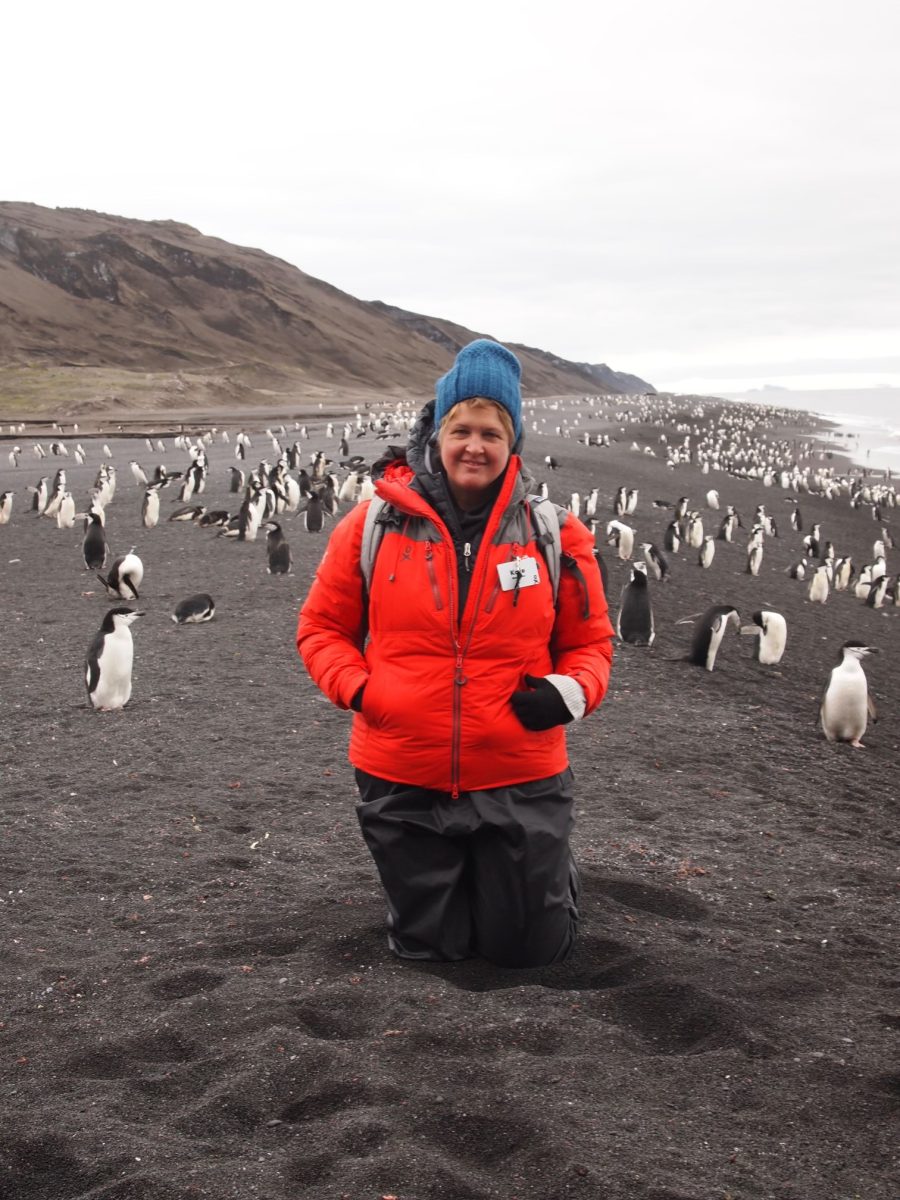
Kate MacMaster made a few thousand new friends on her last trip down to the Antarctic. Photo: Supplied.
“The application process for this is rigorous,” Ms MacMaster said. “It is so important to choose the most appropriate applicant.
“For something like this, the person needs to have a certain level of mental wellbeing as their psychological and physical safety are first considerations. They also have to have a strong level of curiosity and an adventurous spirit because we will be travelling to one of this planet’s last frontiers.”
She said many women involved in STEMM, by the very nature of their work, already had such skills but she said there was really nothing to prepare new visitors to the remarkable region.
They’ll be off the grid – last time she travelled down there the only WiFi access was available from the ship’s bridge, at a cost of $US8 a minute – “I only did it twice last time,” she laughed.
The women were also selected on their resilience, tolerance and patience – “these are so important for the program and to learn how to lead in times of high levels of uncertainty and volatility.
“Antarctica is a place that fills me with awe,” she said, “it is just so inspiring. But what you also see down there is the disastrous effects of climate change and now avian flu. So this time when we go down there will be a lot more restrictions in place.
“My role is to ensure there is a safe space for the women and to help deal with their eco-grief which can be very real down there. That’s why we chose Antarctica because it has become the symbol of climate change.
“It has been devastating to see the effect on wildlife – the thousands of deaths that have occurred among penguin chicks.”
While down there, the women will work in their specific fields as well as in a range of activities organised by Ms MacMaster. They can range from safely getting in and out of Zodiac craft in freezing water, to living and working with 80 women in a strange environment.
“It’s all based on relationships and trust,” she said.
People interested in supporting the women on this project or who would like more information, can visit the website.







